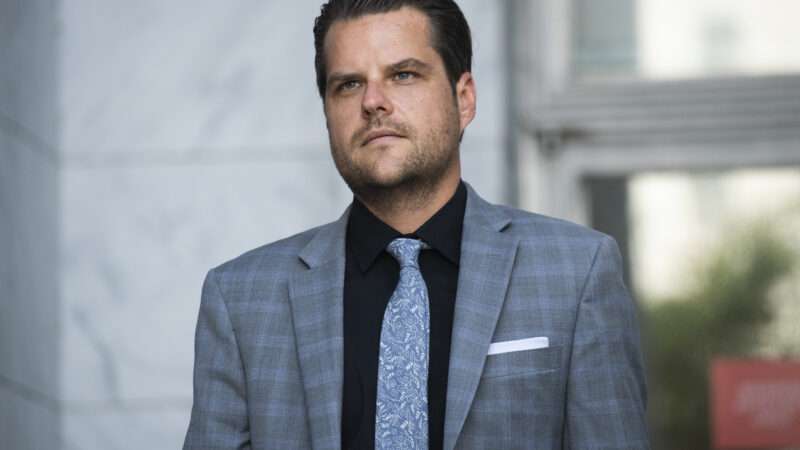
The Education Department announced on Tuesday that it will freeze collections and return garnished wages and tax refunds to student loan borrowers who have defaulted on their Federal Family Education Loans (FFEL). More than 1 million borrowers will be covered by the new policy, and they will join 40 million other Americans who, since March 2020, have not accrued interest or been required to make payments on student loans already owned by the Education Department.
Exactly who are the borrowers in this category? Anyone who took out a Stafford or PLUS student loan prior to 2010 borrowed that money from a commercial lender with a federal guarantee under the FFEL program. If your FFEL loan is in good standing, congratulations! Your loan remains with a commercial lender and Tuesday’s action does not apply to you. However, if you defaulted on your FFEL loan and it has been transferred to a federally funded guaranty agency—but has not been in default so long that the guaranty agency has already transferred collections to the Education Department (in which case, it was already frozen)—then you are the intended beneficiary of Tuesday’s announcement. Your loan repayment will be frozen until at least September 2021, any wages or taxes garnished since March 2020 will likely be returned (at some point), your loan will be restored to good standing, your credit score will hopefully be depenalized, and you will have the option to request a refund of any voluntary payments you made on your defaulted loan during the pandemic.
I qualified many parts of the above because the Education Department does not yet know exactly how many people will benefit from this policy, exactly how much money will be taken from the Treasury in the form of refunded garnishments, how it will return garnishments or refund voluntary payments, or how it will coordinate the various parties needed to make this policy work. For instance, assuming the Education Department can quickly identify every borrower who will be affected by Tuesday’s announcement, it can probably stop the IRS from withholding their 2020 tax refunds, unless, perhaps, those people have already filed. But how quickly can it identify—or get guaranty firms to identify—which employers should stop garnishing defaulted borrower’s wages and communicate that information to them?
If this policy turns out to be a hot mess, it will largely be because the FFEL program was a hot mess.
Under FFEL, the Education Department paid commercial lenders a fee to lend to students and their parents. When a borrower enters repayment and defaults, the commercial lender files a claim with a guaranty agency; the guaranty agency then uses Education Department funds to buy the loan from the commercial lender for about 97 cents on the dollar; that guaranty agency then charges the Education Department to collect on the loan and contracts collections out to various other firms. If the guaranty agency’s debt collection contractors can’t collect, the Education Department takes over loan service and collections.
As that chain of responsibility suggests, FFEL was a case study in moral hazard. Not only did lenders and guaranty agencies make money without taking on risk, but annual limits on how much each student could borrow incentivized lending to as many people as possible, regardless of whether they were likely to complete their degree or had enrolled in an institution that was preparing them for gainful employment.
In the wake of the 2008 mortgage crisis, many private lenders no longer had the capital to issue new FFEL loan disbursements to students who were already enrolled, which left students in the lurch. Asking colleges to charge a fraction of their pre-crisis rates overnight was out of the question, so Congress allowed the Education Department to buy newly issued FFEL loans from the very banks the department had previously paid to issue those loans so that students could continue borrowing. Ultimately, the Education Department purchased roughly $150 billion in FFEL loans issued between 2007 and 2009.
The Education Department’s FFEL purchase in 2009 is why some FFEL borrowers have already benefited from the loan repayment freeze. Other FFEL borrowers have already benefited from the freeze because they were in default so long that their debt had already been moved from the commercial lender to the guaranty agency to the Education Department. To complicate matters further, some guaranty agencies that are servicing FFEL defaulted loans voluntarily froze repayment at the same time the Education Department did. This makes total sense, in a way, because the Education Department already owns the loans that commercial lenders have transferred to the guaranty agencies, but the Education Department does not know exactly which FFEL borrowers in default whose debt remains in the care of guaranty agencies have had their payments frozen.
Again, if this all sounds ridiculously complicated and poorly designed, that’s because it is. Congress killed the FFEL program in 2010 for all the reasons mentioned above and replaced it with Federal Direct Loans, or FDLs, all of which have been frozen since March 2020. But FFEL’s complexity still haunts us because some 8 million FFEL borrowers are still out there, chipping away (or not!) at their ballooning balances.
While there are likely some deadbeats among the beneficiaries of Tuesday’s announcement, the median borrower who is struggling to make minimum payments on loans issued prior to 2010—with some active FFEL loans dating back to the 1990s—probably does need some debt relief and isn’t providing much in the way of garnishment regardless. If you believe in means testing, Tuesday’s policy is better than the blanket freeze on all student loans owned by the Department of Education, which benefitted not just households that lost income, but also white-collar workers who didn’t miss a paycheck over the last year.
However, we should consider whether the Education Department is creating a new moral hazard or other bad incentives. For instance, Tuesday’s announcement says that “any of these [FFEL] loans that went into default since March 13, 2020, will be returned to good standing. The guaranty agencies that hold those loans will assign them to the Department and request that the credit bureaus remove the record of default.” Might some people interpret that to mean they can or should default on FFEL loans that they are currently repaying? What if you defaulted earlier in the pandemic but can now afford repayment—why bother? What message does this send to the 5 million FFEL borrowers whose loans remain with commercial lenders? What message does this send to people who are having their wages garnished for other kinds of debt? What about people who defaulted before COVID-19 tanked the economy, and the people who will default after the economy recovers?
Lastly, when are policymakers going to acknowledge that federal student loans have played a major role in driving up the cost of education, and that dipping into the public fisc to pay off debts incurred due to cost inflation is a vicious cycle that is bound to repeat itself?
from Latest – Reason.com https://ift.tt/3wb8zfT
via IFTTT










